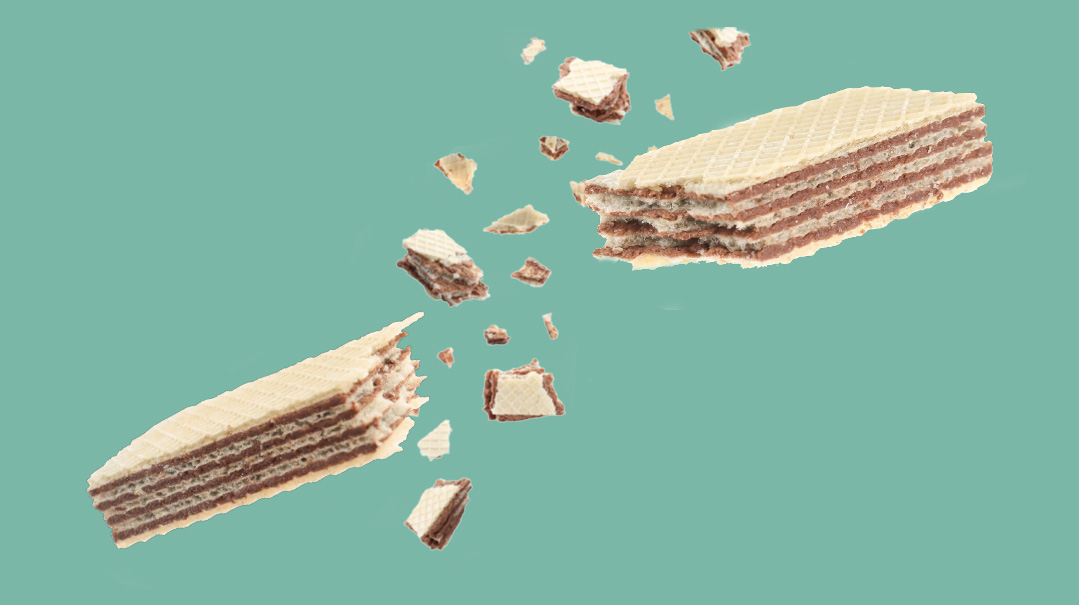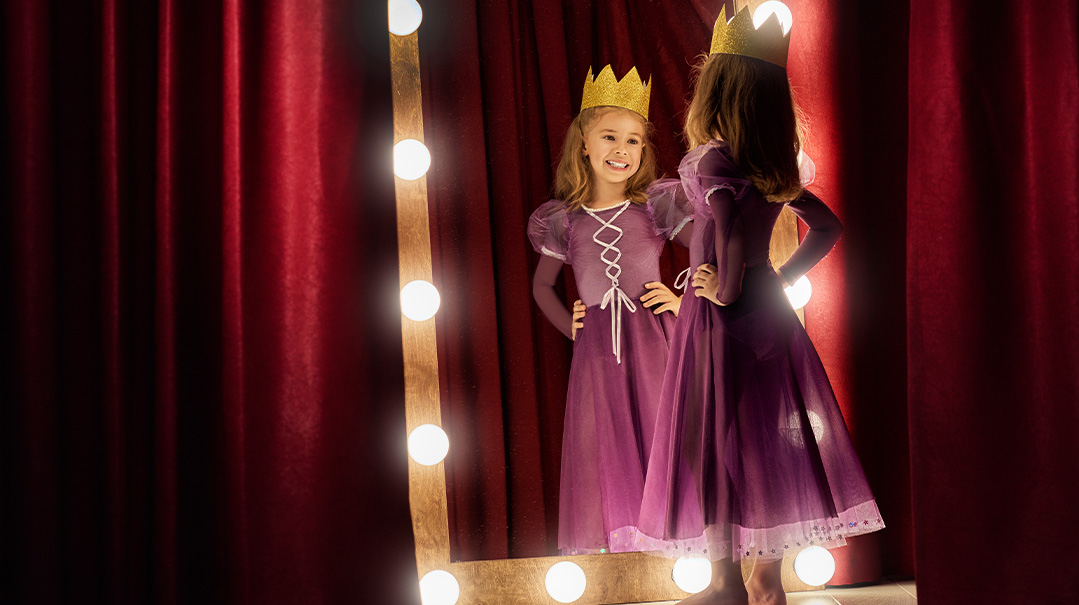Facades That Crumbled

That first night, in the strange and hostile FFB world, I cried myself to sleep

I used to be a regular girl. I wore the right clothes, had the right kind of family, and was accepted by society. I wore my brown uniform to school along with the rest of the country and proudly pledged my allegiance to the one-and-only Lenin.
Then we came to America. My clothes were hand-me-downs, and they were all wrong. My parents got divorced. And I spoke the wrong language at home.
It was then that I discovered the world of kiruv rechokim. It was a beautiful world. It healed the pain of my parents’ divorce, made my clothing seem OK. I met so many new friends. I was 13, naive, but not stupid. I knew what my heart wanted, and I went after it, full force. I started to learn Torah, to daven, and fell in love with the way of life of the wonderful frum counselors at camp.
Camp was a small piece of Heaven. There, they didn’t let anyone slip through the cracks. Each girl had a team teaching, encouraging, and cheering her on. Every Shabbos was a day of joy.
After camp, I made the rounds to all my counselors’ and frum friends’ families for Shabbos. These families were kind and giving. Each had a row of perfect children, beautifully set Shabbos tables, and the most incredible food. I remember thinking that if I made the choice to become frum, my life was going to be just like theirs: perfect and peaceful. Looking at my broken family and unhappy life, this seemed the best way out of my misery.
My Hebrew was rusty since I’d just started learning it, but I sat at home, on our green velvet couch, and began decoding Shema, brachos, and Shemoneh Esreh. Then I moved onto my clothing: the pants had to go. After that, it was kashrus. I often had to settle for cereal and takeout pizza because the kitchen was definitely staying treif.
These changes took years. With each change, the kiruv community cheered, and I felt on top of the world. My friends and counselors and camp directors were the wind beneath my wings. I flew higher and higher, and by the time I was 18, I was fully integrated into the fabric of frum life.
When I boarded the plane for seminary in Eretz Yisrael, I didn’t realize that I was exiting the kiruv world and entering the frum-from-birth one.
It felt like I’d fallen a thousand miles. In the frum-from-birth (FFB) world, I was a nobody. My clothing was all wrong. My hair too short. Even the linen on my bed was embarrassing. No one was friendly. Instead of being viewed as a girl who’d overcome so much to get to the Promised Land, I was an exhibit set behind glass.
Girls made comments like, “I had a Russian girl in my school, and we collected money for her to go to seminary.” Or I got blank stares when I told them my name and where I was from. “Are you related to _____?” No. I wasn’t related to anyone frum; I was the only frum person in my entire family.
That first night, in the strange and hostile FFB world, I cried myself to sleep.
This was my first real taste of what I’d wished for all these years. And it was difficult. I was stuck in a place I didn’t belong. Despite my disappointment and sadness, I smiled for the pictures and went away for Shabbos. I did make friends, but as much as I understood them, they didn’t fully understand me.
“You’re so lucky to be so close to Hashem,” someone once said to me.
“Lucky?” I asked. “What’s so lucky about looking for a place to stay every Shabbos? What’s so lucky about not being able to cook food in my own house? I hate being laughed at by my family for ‘living in the Dark Ages.’ It breaks my heart.”
The girl didn’t know what to say.
When it was time to date, the truth cut me like a knife. While all my seminary friends, with their impeccable shidduch résumés, got redt to one amazing bochur after another, I was clutching a resumé with words like BT, divorced parents, 30 dollars in the bank account. I held my head high at each vort and wedding. I got a job and at least had the right clothing and hair.
But I could only dream of a wedding like the ones I kept attending: full of caring mommies, pretty sisters and sisters-in-law, dapper brothers, proud Tatties, and even prouder grandparents.
It was impossible not to be jealous as I went on date after date with one Russian guy or another. One BT or another. Not one family from the FFB world redt me one of their own.
Eventually I got married to a wonderful bochur. He didn’t look unusual, nor did he have a serious illness. He wasn’t on drugs.
Once I became a married young woman, I thought the playing field would finally be evened out. That I was done being the nebach, the chesed case.
Years passed. I’m a mother of three, bli ayin hara. And as I’ve gotten older, I’ve started to see the difference between the life I’d seen and reality. FFBs aren’t perfect. Those picture-perfect families were anything but, because everybody struggles. In an effort to bring me closer to Hashem, they’d censored their own suffering, fears, and disappointments.
I met people who were FFBs who had hearts of gold. I met FFBs who had no heart at all. I met BTs who were happy and those who weren’t. I met people from all along the spectrum of Yiddishkeit who suffered although they had it all, and those who were happy even though they only had a little.
I learned that people build facades and what goes on behind them is rarely known. We try to live cookie-cutter lives. We try to fit in. In some communities, the pressure is stronger than in others, but it’s always there, no matter how frum or modern you are.
My life as a frum woman isn’t perfect. Overcoming adversity will always be part of life. But then again, I don’t know if any person will emerge from This World scar-free. I miss being cheered on, loved unconditionally by a community of tzaddikim who saw kiruv as their tafkid in life. I miss that world — or maybe I just miss being young and not knowing a thing about life.
I’m pained by what I found behind the facades of my friends’ lives. But if I’d seen that then, who knows if I’d be the lone frum person in my entire family, the one my great-grandmother davened for when she lit her Shabbos candles?
The kiruv world was an important, sweet part of my life. It ignited a spark that still burns.
That flame may be on low during times of distress and hardship, high at special occasions, and when connecting to Hashem.
I’ll forever be grateful to those who lit it, and proud of myself for carrying it on. Because living the actual life, not that of a starstruck young girl, is the everlasting litmus test that my kiruv cheerleaders were successful. I may be a BT with divorced parents, but I’m also a proud and successful member of the frum community.
Today, I pledge my allegiance to the One Above, through thick or thin.
(Originally featured in Family First, Issue 785)
Oops! We could not locate your form.






